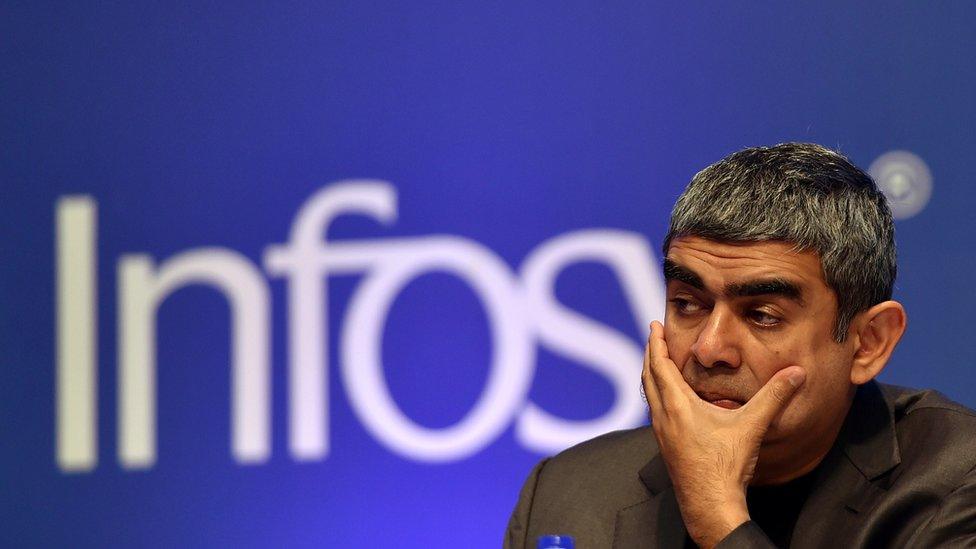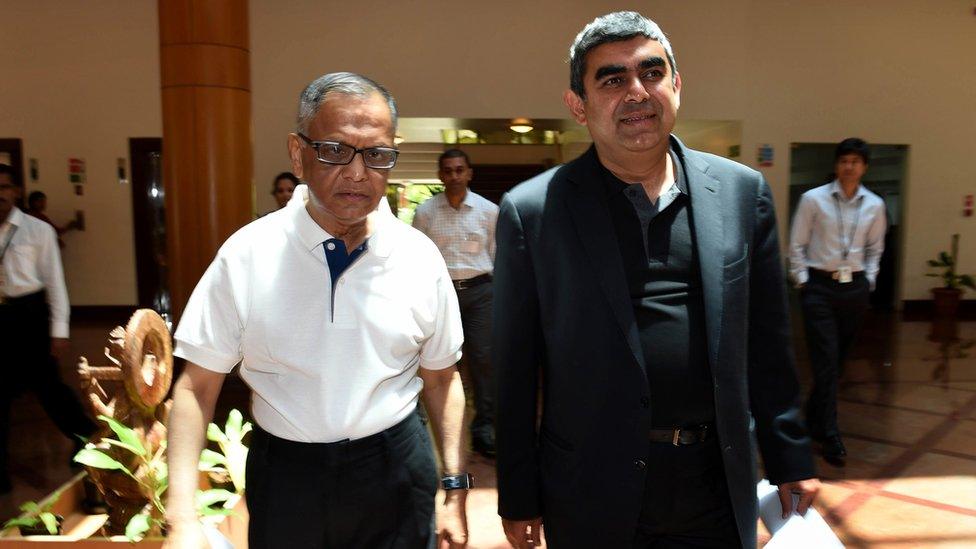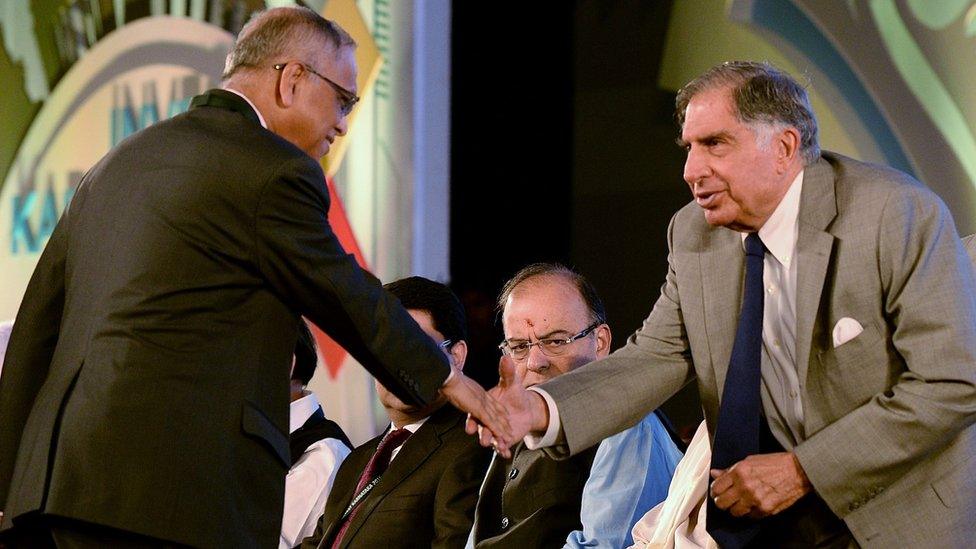Is India's Infosys in a Tata-style battle?
- Published

Infosys was the early torchbearer of India's IT industry
Less than six months after corporate India was shaken up by a boardroom battle at one its most respected companies, another Indian firm is caught up in a public spat between its founder and board, says the BBC's Yogita Limaye.
Software company Infosys may not have as long a history as the 150-year-old Tata group, but it certainly is one of the most well-known Indian names abroad.
It was the early torchbearer of India's IT industry. Founded in 1981 by a group of seven engineers with just $250 (£200), it's now a $10.1bn enterprise with a large global presence.
None of the founders are on the board of the company or involved with the business anymore, but most are still shareholders.
NR Narayana Murthy is one of Infosys' most prominent founders and a well-respected business leader in India. He along with his wife, son and daughter own a 3.44% stake in the company, among the largest held by a single family.
Mr Murthy has now said he's worried about how the company is being run.

Mr Murthy (left) was actively involved in selecting Mr Sikka for the job
In an interview to The Economic Times newspaper, external Mr Murthy said that since June 2015 he had seen "a concerning drop in governance standards at Infosys". He particularly criticised "huge severance pay" given to some employees.
"Such payments raise doubts whether the company is using such payments as hush money to hide something. Even if no misdeed has taken place (I hope so), rationalising it as "generosity" points to utter arrogance towards honest employees, total lack of fiduciary responsibility and an unbelievable lack of application of mind," he said.
There have also been voices questioning the salary of Infosys Chief Executive Vishal Sikka, which was raised from $7m to $11m last year.
Infosys has denied any governance lapses. In a statement the company has said, "The issues highlighted by the media are several months old, on which the Company's position has been repeatedly explained.
"While there could be differences in views on these matters, they have been overwhelmingly approved by shareholders, wherever required, and on which due disclosures have been made. While the Board appreciates and respects inputs from the Founders, it is committed to fulfilling its fiduciary responsibility to act independently and in the overall interest of the shareholders."
How the Tata spat dented India's most trusted brand
Tata ex-chairman: I was a lame duck
How do you sack a boss who won't go?
Vishal Sikka has not commented on the matter, but in a post on Twitter he seems to make a lateral reference to the controversy. "Focus & silence amidst chaos," he wrote.
When Mr Sikka became chief executive of the company in 2014, he was the first non-founder to do so. Mr Murthy was actively involved in selecting Mr Sikka for the job.
At the time, the company was profitable but revenues were slowing. After Mr Sikka took over, for a while earnings grew at a faster pace than expected, but recently the company has cut its revenue growth forecast.
As a brand, Infosys has always been an organisation that most Indians regard as a responsible and reliable firm.

This spat comes close on the heels of the nasty fight between Ratan Tata (R), pictured here with Mr Murthy, and ousted Tata group chairman Cyrus Mistry
This public rift between the founder and the board of the company not only comes as a surprise, but is also worrying for corporate India. That it comes so close on the heels of the nasty fight between Ratan Tata and ousted Tata group chairman Cyrus Mistry only makes it more alarming.
Mr Tata was accused by Mr Mistry of interfering in company decisions, even after he had left it. The Tata group has denied this. But many panned Mr Tata for not being able to let go. Mr Murthy is now facing the same criticism.
"The key people who have contributed to the building of an organisation very often feel that they continue to be the champions, they continue to be the only passionate people for the organisation and they continue to have the right to say anything they like," says Kavil Ramachandran, Executive Director of the Thomas Schmidheiny Centre for Family Enterprise, Indian School of Business.
"They feel like the governance burden is still on them, whether they are on the board or not. But once you've entrusted the responsibility of the company in the hands of other people, it's important that you repose faith in their judgment and their decisions."
Both Mr Tata and Mr Murthy have also found support but the larger question is what all this means for the global perception of Indian companies.
Mr Ramachandran says: "The Tata group was one of the icons of high-quality governance and Infosys is regarded as a high-quality company too. These are stars, and if the founders themselves air grievances or express their helplessness, that means that the governance is questionable."